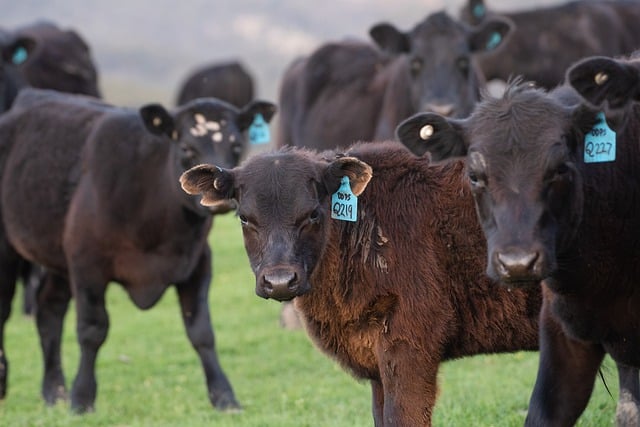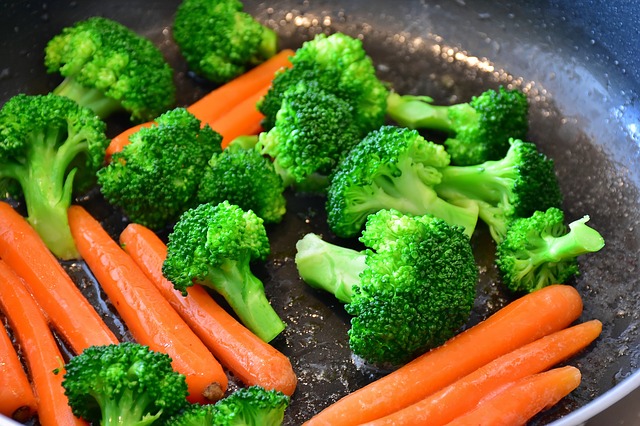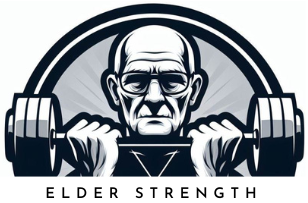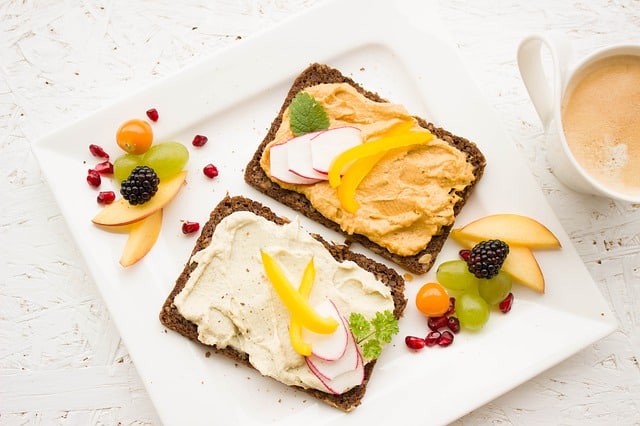More and more people around the world are turning to plant-based diets, and for a good reason. Today we are going to talk about vegan diets for seniors.
You’ve probably seen the news and heard the gossip. You also probably know someone personally who has gone vegan. Maybe someone has recommended it to you after trying it themselves.
Whatever the reason for thinking about going vegan, you are likely wondering if it’s really healthy and safe. Meat, dairy, fish and other animal products are the mainstays of the western cuisine after all.
Many people, especially seniors, also have the impression that meat in one form or another is essential for health and strength. This is likely due to the dated information they learned in school.
While meat and other animal products are extremely nutrient-rich, it’s completely possible to be healthy and strong on a plant-based diet to very old age as proven by this 98-old vegan.
There are certain micronutrients and proteins you have to plan for on a vegan diet. In the past, the importance of these wasn’t fully understood, so vegan diets were seen as unhealthy and leading to malnutrition.
There is also a certain taboo associated with not eating meat. Even if you don’t try to convert people to veganism, many people will get offended just because you don’t eat meat.
I’ve never really understood why this is. I guess part of the issue is that nonvegans can interpret the fact that someone doesn’t eat meat as an attack towards their identity. If not consciously, then subliminally.
If another person is not eating meat for ethical, ecological or health reason it infers without saying a word that your choices are morally wrong.
Whatever the reason is, it does happen. But the good news is that the world has become much more accepting of veganism in recent years so don’t let anyone else’s opinion affect your decision about becoming a vegan.
Reasons For Veganism?
So why would one go on a vegan diet? There are three common arguments and a ton of more specific ones that are beyond the scope of this article.
The most common reason for choosing a vegan diet is ethical reasons. I’m sure you are aware that most animal products are produced through industrial-scale farming.
Farming in industrial-scale involves keeping millions of animals captive, force-feeding and unethical breeding like making chickens with oversized chest muscles.
Animal cruelty and suffering are inevitable even in the most sophisticated and hygienic facilities as well as in free-range organic farming.

The simple fact that we grow animals in captivity to be killed for our sustenance when there are plant-based options is enough to convince many people to turn vegan.
Another reason to go vegan is ecological reasons. Plant-based diets require much fewer resources than animal-based products.
This is because you have to feed livestock with plant foods that could be either directly or through food processing consumed as human food.
The worst thing is that feeding plant-based food to animals to convert it into protein is extremely inefficient. It takes about ten times the plant food to produce one part of animal food. Meaning that you could feed ten people with the same amount
It’s, of course, this simple as there are different ways to calculate to this, and different foods in both ends will affect the efficiency but this gives you a rough conception on how much resources producing meat requires.
Cultivating crops for animal fodder requires huge amounts of land, irrigation water, and resources. These crops and the actual animals cause all sorts of negative effects on a global scale ranging from carbon dioxide and methane emissions to soil erosion, loss of clean water and bringing down rain forests.
Finally, many people turn to plant-based diets because of health reasons. I’d like to point out that there is a lot of exaggeration and make-belief in the beneficial health effects of a vegan diet.
Vegan is no more magical for health than any other reasonable diet. Vegan diets are associated with slight health benefits, especially for inflammation and heart health.
People like to make diet more important for health than actual research suggests it is. This is likely because eating a really unhealthy diet can and likely will reduce your lifespan. But this doesn’t mean that eating an extremely “healthy” diet will improve you health endlessly.
Is Veganism Healthy For Seniors
If you want to follow a vegan diet as a senior it’s generally seen as a very healthy option. There are some precautions that you need to take as seniors are more prone to certain nutrient deficiencies that I’ll talk more about in the next chapter.
If you eat a well-planned vegan diet and use supplements when required, a vegan diet can be an extremely healthy option for seniors with many associated health benefits.
Plant-based diets have been associated with improved blood lipid profiles (lowered cholesterol). This is likely because of the high fiber content of the diet as well as the very low amount of saturated fats in a plant-based diet in general.
Vegan diets are also excellent for losing weight and maintaining a healthy weight. This is because a plant-based diet is low in calorie density and very satiating. Meaning you will feel full with less food and thus lose weight.
Vegan and vegetarian diets are also associated with a lower risk of age-related diseases and a longer average healthspan when compared to non-vegetarian. This is likely due to the high antioxidant and nutrient density of plant-based foods. Also, reduced weight and cholesterol levels will reduce your risk of getting age-related diseases.
This, of course, doesn’t mean that simply following a vegan diet will make you impervious to disease. It’s just a slight edge against aging.
Importance Of Micronutrients
The most important thing about a vegan diet for seniors is to make sure you get enough all the essential vitamins and micronutrients that are typically obtained mostly from animal sources.
These include especially vitamins B12 and D. Vitamin D can naturally be achieved through sufficient sun exposure but if you live in a colder climate you might need to supplement it through your diet.
B12 is notorious for causing health issues like neurological symptoms and fatigue in vegans who haven’t done their research before going on a vegan diet.
B12 is probably the most important vitamin to supplement on a vegan diet because it’s mostly obtained through animal products. The best natural vegan source for B12 is nutritional yeast.
From micronutrients, especially calcium and iron are hard to achieve completely through natural vegan sources. It’s possible but you need to know a lot about which plants to consume and how to combine different sources for optimal absorption as many vegan mineral sources aren’t readily digestible.
That’s why it’s much easier to include fortified vegan foods in your diet. Vegan milks from soy, almond, cashew, oats and many others are great for obtaining all the essential vitamins and micronutrients. They are almost always fortified with all the essential vitamins. The same goes for vegan yogurts and other processed vegan foods.
Vegan Food Options
In case you are interested in vegan foods but think you can’t simply live on vegetables alone I have good news for you. Veganism these days isn’t about eating raw soybeans with broccoli and cauliflower like many people seem to think.

A typical vegan diet can include the basic carbs sources of a regular diet like bread, pasta potatoes, oats, and rice. These can be combined with several different kinds of vegetable proteins including meat mimicking soy or seitan stakes.
Dairy is very easy to substitute with vegetable milks, yogurts, and cheeses. There are a ton of options and most of them taste pretty good these days. Just don’t expect them to taste exactly like milk products and you’ll do fine. If you for some reason find vegetable milks disgusting, just think of the fact that real milk is a secretion of a living mammal.
With modern options a day on a vegan diet could look something like this:
- Breakfast: Big bowl of oatmeal with berries and olive oil with a smoothie made out of almond milk, soy yogurt, rice protein, and frozen fruits.
- Lunch: Wholegrain bread sandwich with hummus and avocado topping. A tall glass of soy milk.
- Dinner: A vegan cheeseburger with a seitan steak, vegan cheese, and vegan mayonnaise. A piece of dark vegan chocolate for dessert.
This is just an example to get your imagination going. There really aren’t that many foods you have to leave without on a vegan diet these days.
Vegan Supplements
There are a few supplements I recommend every vegan should use. These are especially important for seniors doing strength training.
The first is protein. While it’s possible to obtain a sufficient amount of protein for health reasons from a well-planned vegan diet, it’s usually not optimal for improving strength and maintaining muscle mass which every senior should strive to do.
Fortunately, there are great vegan protein options available these days, including rice protein, hemp protein, pea protein, and of course soy protein. My own favorite and recommendation is rice protein because it’s the most neutral tasting and has a relatively good amino acid profile. You can read more about my protein supplement recommendations for seniors here.
Creatine is another very important supplement for both vegans and seniors. Creatine is a substance that your muscles use for strength production. It is mostly obtained from meats in your diet, especially red meat.
This means that vegans will have very low creatine levels. Because creatine is important for both maintaining muscle mass and cognitive function and its amounts decline with age, it’s a very beneficial supplement for seniors on a vegan diet. You can find more information on supplementing creatine for seniors here.
Finally, I recommend getting a high-quality multivitamin because even if you plan everything correctly, there’s an increased chance of vitamin deficiencies on a vegan diet.
Conclusion
If you are thinking about trying a vegan diet I encourage you to read up on the research, find a good diet template that suits your personal needs and make sure you get all the necessary nutrients through supplementation, especially in the beginning.
Seniors should always discuss drastic diet changes with their doctor to rule out any contraindications or effects on medications.
That said a vegan diet is a great option for most seniors. It’s both ethical, ecological and healthy. You just have to make sure you plan your diet correctly to avoid nutrient deficiency and to get enough protein.
If you found this post useful, please subscribe to my newsletter, share in social media and bookmark my site!
See you next time.


Well explained. You know where you are talking about and you are, telling it on in a way we can learn something about it.
thank u
Glad you found it useful Jordy! All the best to you.
Great article … very well explained!
Glad you found it useful Susanne!
Please sign me up for the newsletter
Hi Bee! You can leave your email address in any of the newsletter forms on my website and you will be added.